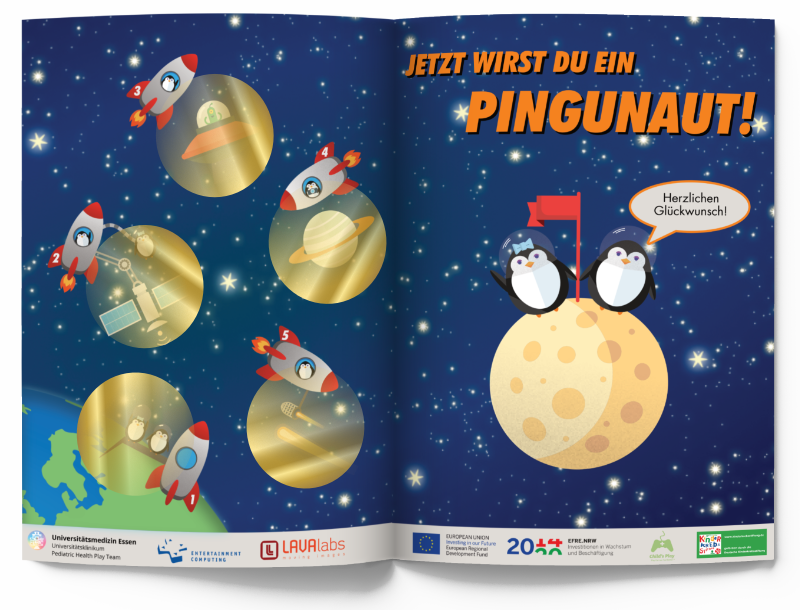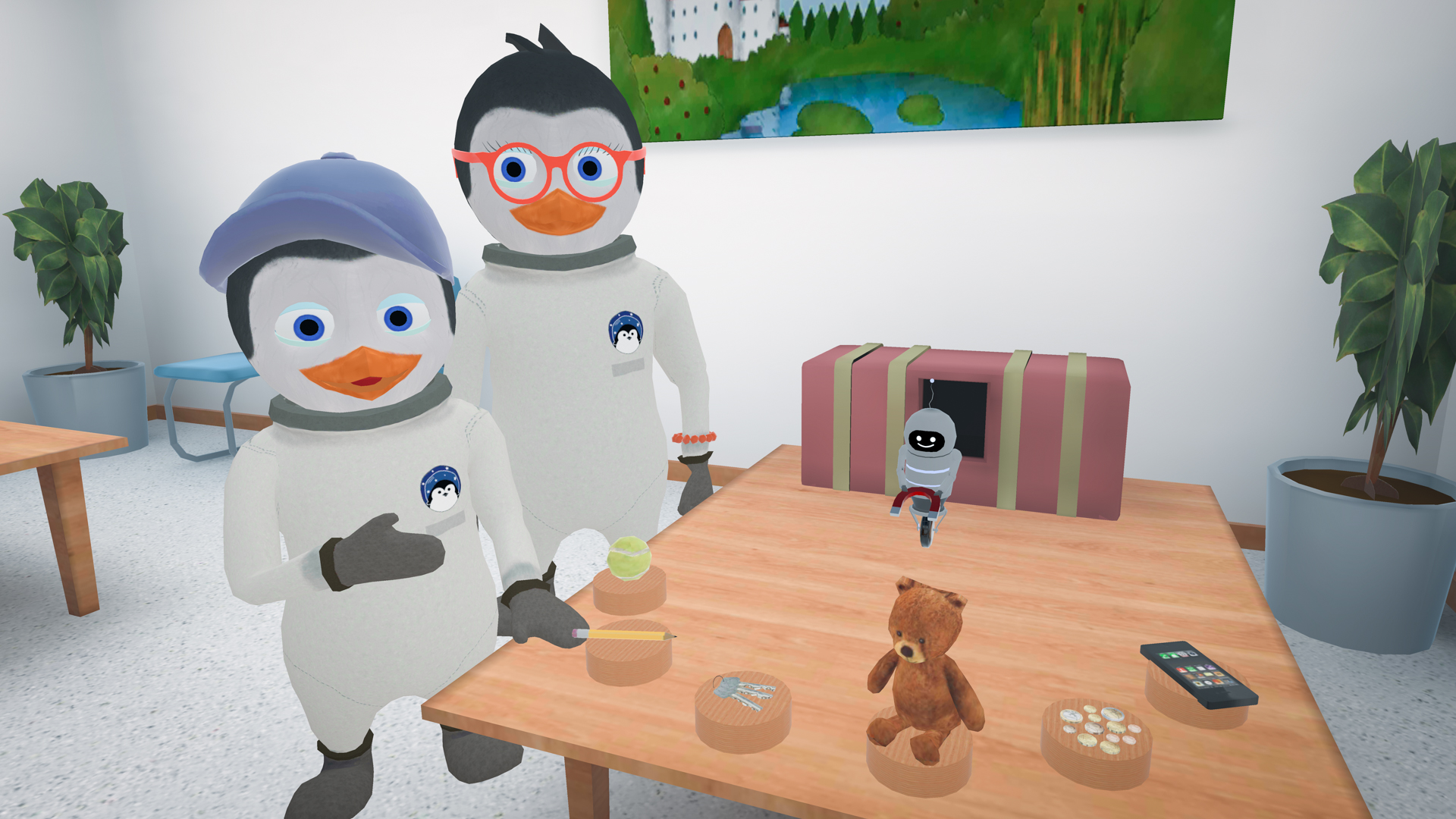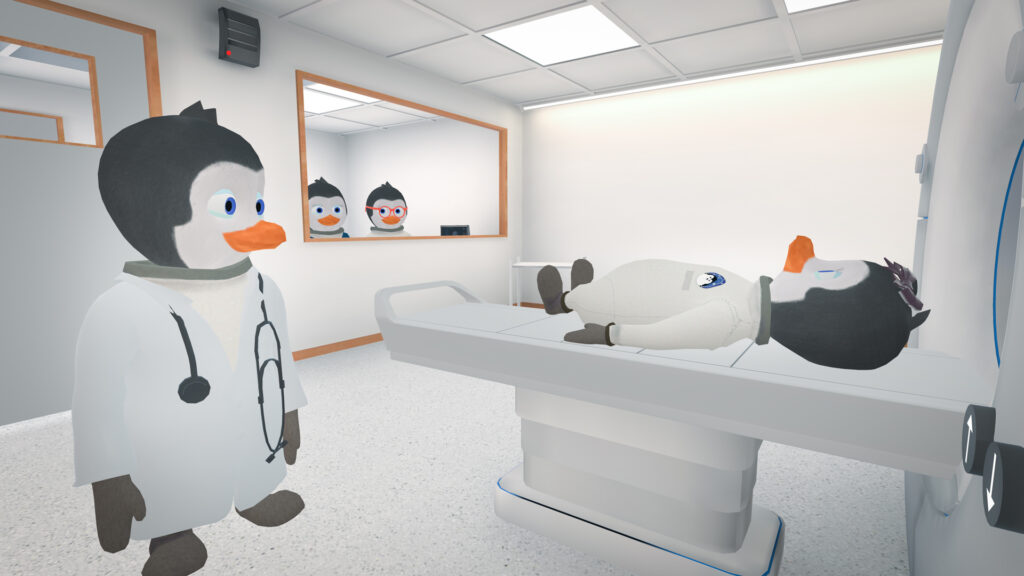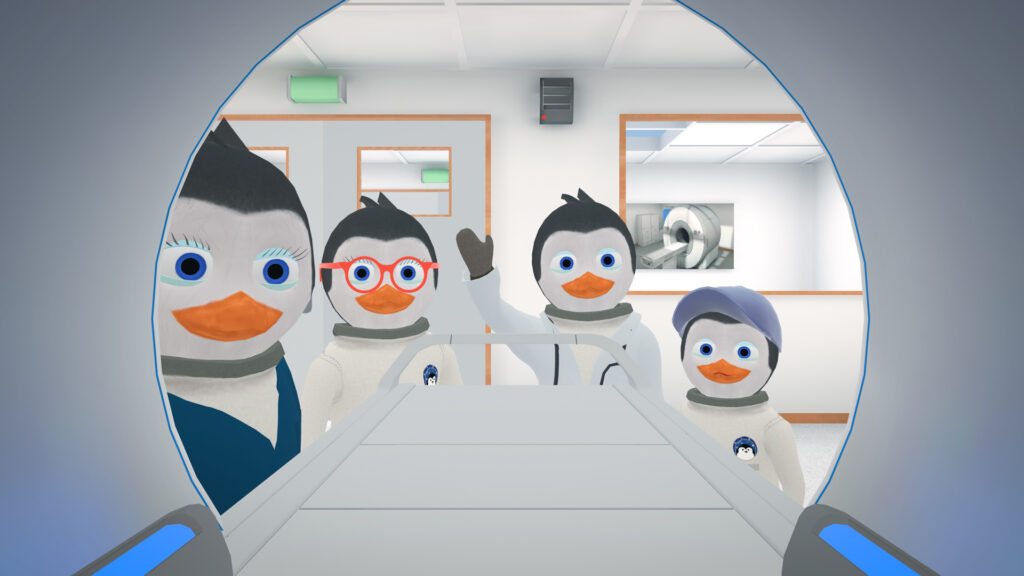THE PENGUNAUT TRAINER
The Pengunaut Trainer is more than just an MRI simulation. It is part of a comprehensive playful intervention to improve children’s emotional wellbeing in the context of the MRI scan. In addition to the digital content of the app, this intervention also includes the real-world component “Space Pass”.
The underlying concept is based on several proven interventions to reduce anxiety, promote relaxation and increase cooperation in paediatric patients. Elements of play therapy are combined with VR-based exposure therapy and targeted patient information. In addition, the Pengunaut Trainer teaches child-friendly coping strategies that enable young patients to actively help themselves. All these elements are wrapped up in a child-friendly story that takes children step-by-step through a radiological examination and slowly introduces them to the experience of a virtual MRI scan.
As experienced developers of serious games – i.e. games that are not just for entertainment, but also have a serious purpose – we were keen from the outset to combine current research findings with playful elements, and to keep the medical content as realistic and accurate as possible.
As the Pingunaut Trainer is a completely new concept based on scientific evidence, theoretical considerations and practical know-how, the design and development phase was followed by an extensive evaluation in the form of a multi-centre clinical study.
If you need help with the controls or gameplay of the app, you can download a game manual as a PDF.
Only show this to your child if they get stuck in the game.
Story and Characters
In the world of Pengunaut Trainer, all the characters are penguins. At the start of the app, children can choose which of the two penguin children, Benny and Bella, they would like to be accompanied by. The story begins in the reception area of a typical radiology department, where players are welcomed by nurse Florence Fin to train for their MRI scan. The players then meet Benny or Lotta and their mother, Mrs Beak. The players learn that Benny or Bella will also be having an MRI scan. The players are then invited to play the first mini-game „Robo Magneto“. At the end of the game, players will meet radiologist MD Theodore Tails, who will guide them through the virtual MRI examination.
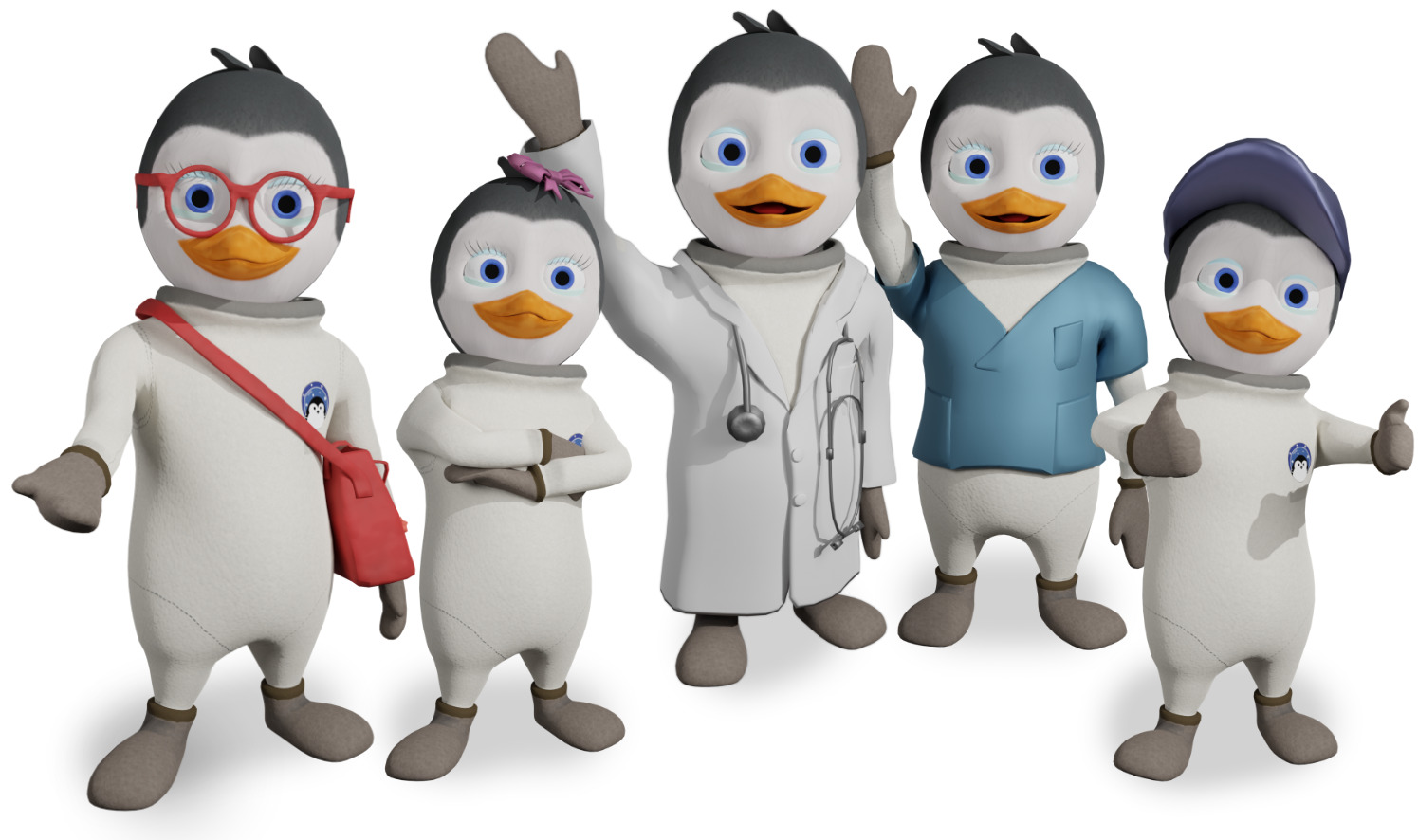
Mrs. Beak (the mother), Bella Beak, MD Tails (the radiologist), Florence Fin (the nurse), Benny Beak
Mini-Games
The Pengunaut Trainer includes three mini-games that teach patients about the background, procedures and specific requirements of an MRI in an entertaining way. Step by step, the young patients are introduced to the situation in the MRI and can gradually get used to it. While the first two games, „Robo Magneto“ and „MRI Controller“, are primarily designed to impart knowledge, the „Stargazer“ game is the core of our application. This is where the actual training takes place, i.e. the repeated completion of a virtual MRI scan.
Robo Magneto
The first mini-game, “Robo Magneto”, can be found in the waiting room and is played with the companion previously selected. The aim of the game is to inform the patients about the magnetic properties of the MRI scanner and what objects are allowed in the examination room. The players have to choose the objects they think are magnetic (e.g. coins, keys, a mobile phone).
MRT-Controller
The “MRI Controller” game is a direct application of play therapy methods to familiarize patients with the steps of the MRI examination. In this game, the players themselves operate the virtual MRI scanner. First a teddy bear is scanned, then Benny or Bella. These scans take one minute, during which the characteristic sounds of the scanner can be heard for the first time.
Stargazer
This game is the final stage of gradual exposure therapy, where patients experience an MRI scan in VR. Therefore, they have to lie flat on their back in the real world. The game begins with a short introduction. The narrative includes elements of progressive muscle relaxation, autogenic training and imaginative relaxation. Then stars appear on the ceiling of the virtual MRI scanner, slowly forming constellations as the players continue to lie completely still. If the players move, the stars no longer connect.
The game consists of five increasingly difficult levels, with the length of the virtual scan increasing (from one to eight minutes) and the number of consecutive constellations and connections between stars per constellation being determined. In the last level, the duration of the scan is only five minutes, but no more stars are displayed. The players‘ movements are detected by the smartphone’s motion sensors.
Courage Formulas
At the beginning of the training the players can choose a courage formula. The courage formulas are based on the concept of autosuggestion and combine words associated with calmness, composure and strength. Hence, the children can learn a method to encourage themselves in the MRI.
The courage formulas have been created by a trained child and adolescent psychologist. Once memorized, they can also help the child keep a calm and relaxed in other frightening situations.
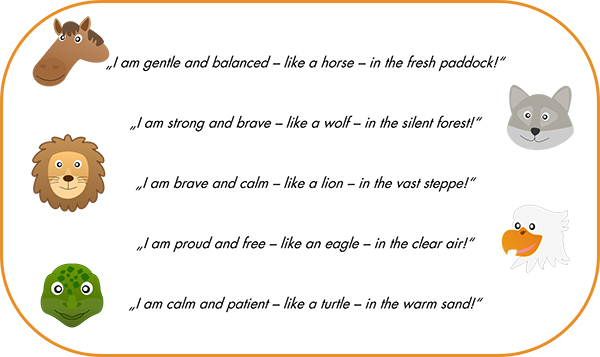
Space Pass
The Space Pass is a booklet that the players can use to record their training progress. For each successfully completed level of the “Stargazer” game (the virtual MRI scan), players can scratch off a sticker on the Space Pass.
